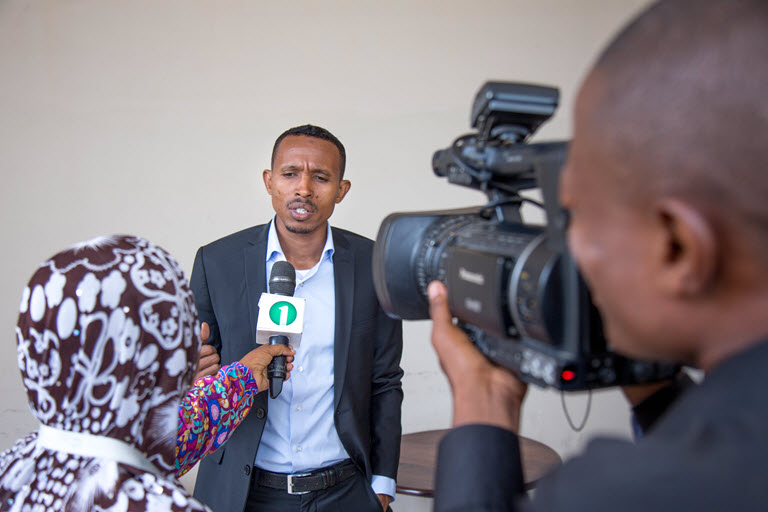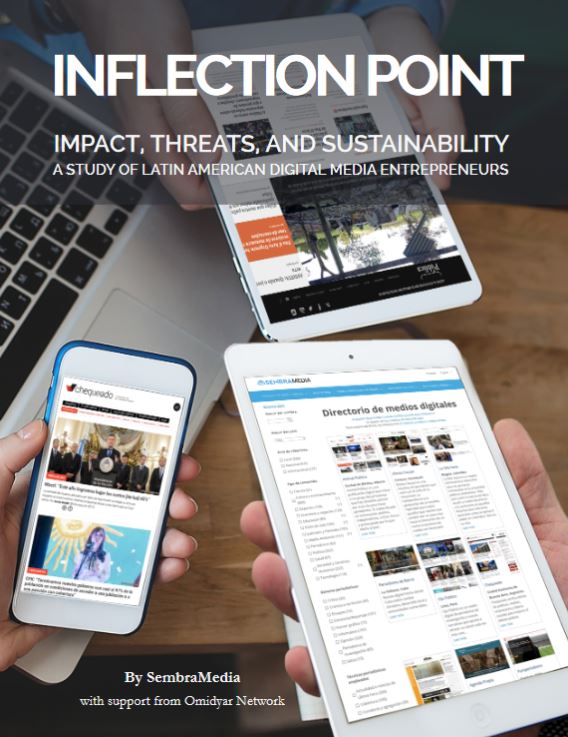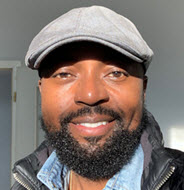The East Africa’s media landscape is distinctly fascinating as shown by the three independent country reports -accessible via our EAST Library. The studies were guided by the DW Academy Media Viability Indicators (MVIs) which consider five key aspects: politics, economy, technology, community, and content.
Here are five thought-provoking findings you might not have known about East Africa’s media ecosystem.
I).The Covid pandemic punctured Ad boom
Kenya was East Africa’s most prominent media ad spender, East Africa’s biggest economy shelled out $1 billion in commercials as of December 2019. However, revenue from advertising has recently been hit hard by the ongoing Covid-19 pandemic.
In Tanzania, ad revenues have been declining for a long time, but the ongoing pandemic has exacerbated the situation. Analysts blame stiff competition from new entrants into the media space who have taken advantage of digital platforms for declining ad revenue.
Uganda’s $0.05 daily tax on social media users may have increased government revenue but has harmed the previous access and consumption of media sites Ugandans enjoyed before the tax, and thereby limited the digital ad revenues for media outlets.

II). Politics constantly attempting to influence media
Another critical finding from the study is that companies that buy ad campaigns in Kenya have strong links to the political elite. As a result, some of them occasionally seek to manipulate media content. The government subtly attempts to influence the media too.
“Why would the government be re-introducing new pieces of legislation that have been declared unconstitutional by the courts of the land as going against freedom of expression and other democratic gains?” Dr. Erneo Nyamboga, a media scholar and lecturer at Moi University, asked. He gives an example of the Computer Misuse and Cybercrimes Amendment Bill 2021, seeking to amend the Computer Misuse and Cybercrimes Act (2018).
In neighbouring Tanzania, potential advertisers have to walk a tightrope, and many avoid media that are critical of the government for fear of reprisals.
Uganda’s current legal framework does not support media growth, and some laws even seek to suppress and control the press. In addition, frequent internet shutdowns by the government during elections and the switching off of radio stations – Ugandans rely heavily on radio for news and information – significantly undermines freedom of expression.

III). Technology- budding space for East Africa’s digital news content
With the proliferation of social media and increasing internet access, the digital space is a boom and a curse for East Africa’s media industry.
Tanzania’s commercial capital, Dar es Salaam, is one of the most expensive cities to purchase internet bundles. Nevertheless, access to Information Communication Technologies (ICT) has seen a steady increase, particularly in Tanzania mainland.
At least 40% of Ugandan journalists used cyber cafes and shared computers to access the web five years ago. But the country is now experiencing exponential growth in accessing and using ICT. More than 18 million Ugandans are now connected to the internet, the majority of them via smartphones. However, like in Tanzania, internet connectivity is still high for many Ugandans.
On the contrary, more than 85% of Kenyans were connected to the internet in 2020, the highest internet penetration in Africa, according to a ranking by Internet World Stats (IWS). Tanzania had 39% and Uganda 37 %, respectively. In addition, approximately 2.8 million people in Kenya get their news digitally every day.
IV). Content- Need to improve quality to attain media viability
Tanzania boasts the most print publications in East Africa. However, since the establishment of the Fifth Republic, authorities have enacted new legislation and enforced existing laws that stifle independent reporting and restrict the work of media, non-governmental organisations, and political opposition groups.
The Kenyan media landscape is considered one of Africa’s most developed. But while Kenyan reporters are highly qualified, there is a considerable gap in journalists specializing in covering thematic issues such as the environment, law, foreign policy, science, and other relevant topics.
In Uganda, most broadcast media organisations prefer to hire professionals who are not necessarily journalists but focus on entertainment that attracts a large audience. Those who engage trained journalists go for diploma holders instead of degree holders since the latter demand more pay.
V). Community changing news consumption habits.
More and more Tanzanians are turning to social media platforms to connect, interact, debate, and share stories from mainstream media. The trend is so popular that the government decided to intervene with regulations to monitor the space. Citizen journalism is thus becoming an essential aspect of Tanzanian media by helping address issues that mainstream media would have otherwise neglected. However, comparatively low media literacy rates may limit true audience engagement and participation in the medium term.
The ideal way to reach Ugandans with news is via radio. Although social media is gaining popularity, an estimated 87% of citizens own a radio.

“This is a vital finding in the face of perceptions that technology has greatly changed the media landscape with most Ugandans relying on social media,” Emilly Maractho, researcher and media lecturer at Uganda Christian University, said. “This heavily played out during the 2021 elections in Uganda with disappointing results for those who relied on social media to read the pulse of the election.”
By contrast, traditional news media in Kenya is in fact under pressure from social media newsmakers. Bloggers, influencers, and content makers are quick to break stories that mainstream media otherwise ignored but, after picking traction online, become stories of the day.
Conclusion: The study calls for solutions to structural, political, and societal conditions that jeopardize the future of media as a viable business and a source of high-quality journalism in East Africa. To find out more you should read the full report here: Kenya, Uganda, Tanzania.
 Chris Mwakideu
Chris MwakideuReport by Aga Khan University’s Media Innovation Centre analyses the country’s millennials and digital natives’ media consumption habits.
For the media to flourish, and the society to have free flow of accurate and verifiable information, journalists, the drivers in the passing of information are expected to be well grounded in laws and the legal aspect pertaining to the job, writes Alfred Ganzo.
Pitching provides numerous opportunities for your new or existing business ideas to be discovered and realized; and as Simon Mtabazi writes, some startups have become billion-dollar companies due to efffevie pitches
The success you achieve with your media startup business will heavily rely on your reputation as a trustworthy company, and as Nandi Mwiyombella writes, it will also open a new window for customers and potential investors.
That’s why I think today is such a great space for us to sit back and reflect on the questions that could help us shape the kind of journalism that we want to see in our local and global community.
The report specifically analysed eight major variables which include: newsroom structure and resources, media ownership and business models, organisational capacity, innovation culture, journalism culture, financial trends and results, content quality and COVID-19.
Mudi, in her role as Media Council of Kenya regional coordinator in charge of Mombasa(covering the entire coastal region), has found herself at the forefront in advocating and fighting to protect journalists’ rights, culminating in her being awarded for her peace efforts in the run-up and during the 2022 general elections in Kenya.
The 2022 general elections have been mentally draining for journalists, some of whom have had to stay on the campaign trail for over a year. Others have had to toy with the tough call of managing teams in the newsroom. East Site’s Isaac Swila and political writer Rawlings Otieno recount their experiences
What role did social media influencers play in the election? What voice did they give in political discourses during and around the election period? And to what extent did political candidates involve the influencers in marketing their manifestos to sway votes in their favour? East Site writer Steven Omondi unpacks the details
The media industry is experiencing enormous transformation as new digital trends emerge. With the vast opportunities that the digital space offers, media owners and content producers must deliberately adapt to how the audience consumes content.
With the increased Digital Technology at the palm of just anybody; there are a lot of information that distort whether deliberately or not highlighting the need of robust Fact0checking as Asha D. Abinallah explains
Is there a danger in media personalities having a vibrant social media presence? Assuming they have a massive media following, should they self-regulate and filter what they post? And when they engage with followers, should their opinions be taken as personal, or does it represent the journalist’s media house? East Site writer Isaac Swila explores
Media stakeholders are raising concerns over the lack of gender-inclusive reporting in East African newsrooms. They want concerted efforts to ensure more female journalists get equal opportunities like their male counterparts.
The partnership will also ensure that local content is curated and distributed to better optimize the product and meet the needs of Kenyan online users.
The news industry is constantly changing, and in the last few years, User Generated Content (UGC) has become a ubiquitous feature in news sourcing and packaging. However, media houses and journalists need to establish verification and credibility safeguards to avoid the misinformation trap.
Reporting on elections is, for many journalists, an opportunity to establish themselves as reliable political reporters. But the task comes with certain risks, particularly in the East African sub-region.
Stakeholders are now calling for concerted efforts, better planning and preparations for journalists before they are sent out on the field to cover Kenya’s high-stakes August 9 General Elections.
East Africa’s media grapples with a myriad of challenges whenever general elections approach. Not only do editors struggle with balancing the competing political interests, at times at the altar of professionalism, but individual journalists pay dearly, many suffering attacks in the course of their duties.
As Form One students settle into a new life in secondary school, this has also been a period of reflection. We have read tear-jerking and heart-warming stories of determined students who overcame many odds to get an education and how well-wishers came together in their aid.
There is renewed optimism in the Tanzanian media space following the ascension to power of President Samia Suluhu whose regime is keen to relax some of the laws deemed punitive to journalists and media houses
Uganda fell behind, whereas Kenya improved its press freedom ranking in the Reporters Without Borders 2022 Press Freedom Index. And after years of media freedom decline, Tanzania appears to be on the right track. But overall, media freedom activists say there is still work to be done.
A free and independent press is the cornerstone of any democracy and the foundation of economic success, mostly because through our free press, we’re able to hold the leadership to account.
To align with the changing times and stay relevant in the business, media houses are challenged to rethink their strategy and to adopt and understand obstacles and challenges they face towards rethinking and exploring alternative sources of revenue and on developing the digital strategy.
A team of young, Tanzanian tech-savvy communication professionals is dreaming big. It seeks to usher a new dawn in media business management in Tanzania by optimising employee output and offering consultancy to media businesses on how they can operate with a minimal budget but still attain their goals.
Bloggers and influencers have become an integral component of information sourcing across East Africa. The public uses blogs, privately run websites and social networks to crowdsource information from social networks, which they then publish and distribute. But it’s not all rosy for this group of content makers.
The chances of meeting a medical graduate practising journalism are usually very slim, especially in Sub-Saharan Africa. But two Tanzanian physicians have broken away from that norm by inventing a start-up called Afyatoon. It uses visual art technology to tell compelling medical stories. They narrate to the EAST Site their experience and share their vision for the future.
Did you know that in 2021 Kenyans watched less TV and spent more time on social media? Or that some Kenyans rely on family, friends, or even social media icons and bloggers as a source of news and information? These are some of the conclusions highlighted in the 2021 State of the Media Survey conducted by the Media Council of Kenya (MCK).
The effects of the Covid pandemic continue to change the world in ways we had not imagined possible. The media is going through a painful transformation to keep up with changing production, distribution and consumption habits. In East Africa, Uganda’s Media Challenge Initiative (MCI) recently hosted a panel discussion on Media Viability comprising experienced journalists from Television, Radio, Print and Online/Digital media to address lessons learned from the pandemic. East Site’s Moses Mutente attended the panel and compiled this article.
In this commentary, Uganda-based journalist Caleb Okereke shares deep personal insights into why media schools in East Africa must rethink their curriculum. He stresses the need for trainers to begin teaching media ownership to better equip journalism students for the dynamic and cutthroat job market by taking us through his journey as a journalism student and media owner.
For the second year running, a survey commissioned by the Media Council of Kenya shows that the trust level in Kenyan media has nosedived, raising fundamental questions on how media will play its watchdog role more so with landmark elections set for August 9. EAST Site writer Isaac Swila explores.